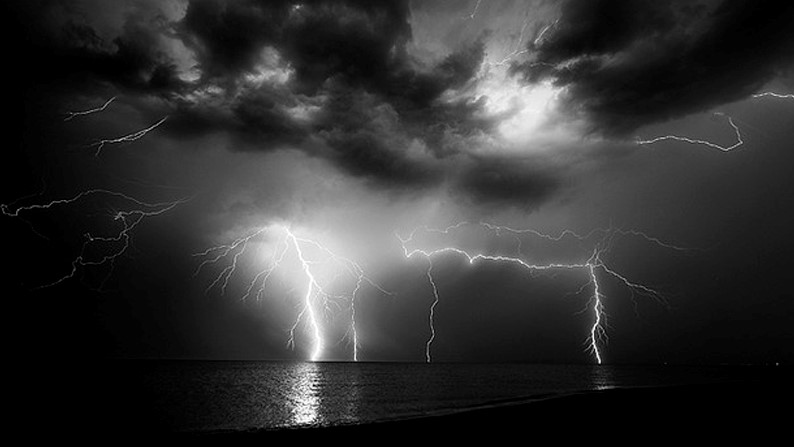
Genesis 1:1-5
Baptism of the Lord B7
1 In the beginning when GodA createdB the heavensC and the earth,D
2 the earth was a formlessE voidF and darknessG covered the face of the deep,H while a windI from God sweptJ over the face of the waters.
3 Then God said, “Let there be light”;K and there was light. 4 And God saw that the light was good;L and God separated the light from the darkness. 5 God called the light Day, and the darkness he called Night.M And there was eveningN and there was morning,O the first day.
Image Credit: “Lightening” by Giles Chiroleu, 2008.
